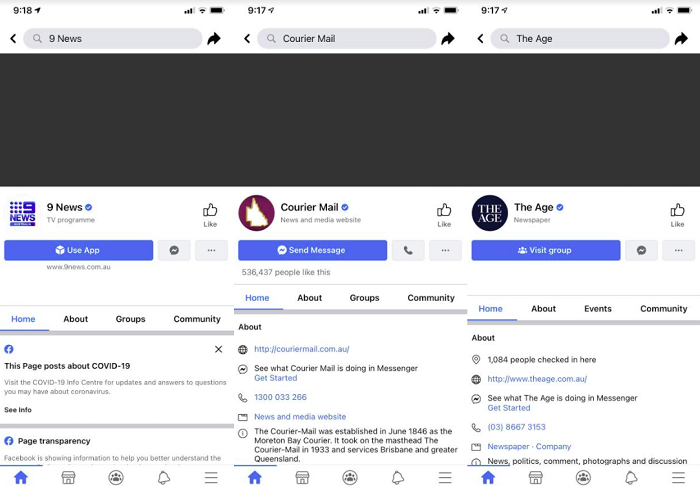Meta’s following through on its threat to block news content in Canada, after Canada’s new Online News Act was passed by Parliament, which could have a significant impact on overall social media usage in the region.
As explained by Meta:
“Today, we are confirming that news availability will be ended on Facebook and Instagram for all users in Canada prior to the Online News Act (Bill C-18) taking effect. We have repeatedly shared that in order to comply with Bill C-18, passed today in Parliament, content from news outlets, including news publishers and broadcasters, will no longer be available to people accessing our platforms in Canada.”
Indeed, back in March, Meta said that it would be forced to remove news content from its apps as a result of the proposal, which, according to the proposal, is intended to address imbalances in the local media market, where Meta and Google have gradually taken more and more of the ad market share. Meta has long countered that it doesn’t actually need news content, thus rendering the basis of the legislation incorrect, but Canada has opted to move forward with the proposal anyway, which would ideally see revenue from news content shared on Google and Facebook shared with local publishers.
Which is a flawed approach, though it has seemingly worked in other regions.
Australia implemented similar legislation in 2021, which also saw Meta take the same stance, and ban news content for Australian users temporarily.

That dispute was resolved through a renegotiation of the terms of the proposed Media Bargaining Code, and since then, Australia’s Treasury Department has reported that over 30 commercial agreements have been established between Google and Meta and Australian news businesses, diverting over $AU200 million annually to local media providers.
So there is a precedent for establishing these agreements, which is likely why Canada’s now pushing for the same. Though Meta seems less likely to yield to their requests their time around.
So, as of right now, news content will soon be gone from Facebook and Instagram, while sharing links from publishers will also be blocked. The next step will be negotiation between Meta and the Canadian Government – though with news content now making up far less of the material shared on Facebook, Meta does seem to have the upper hand in this discussion.
The end result, then, will likely only end up being less distribution for news publishers till the situation is resolved, one way or another. Australia’s local news ban lasted just over five days, but again, the situation was a lot different then, with news being a bigger element in overall Facebook engagement.
This one could go on for a lot longer, depending on how things play out.



